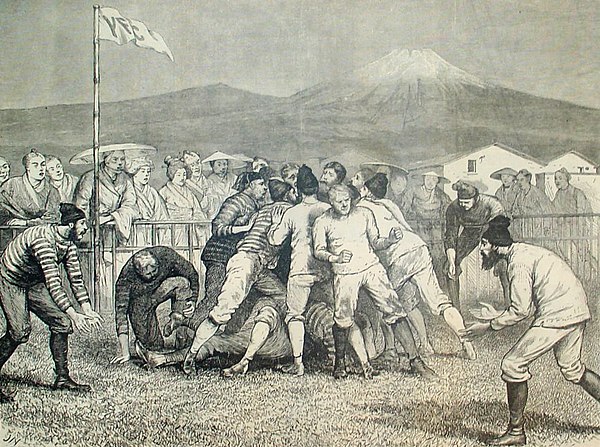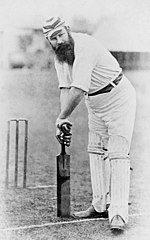Globalsport/Teacher Notes/Time Change
Contents
Rugby World Cup: Time and Change
This strand complements the others by giving students the opportunity to explore how the game has developed over time and the impact of changes in society on the game, the way its played and its role as a social/cultural activity. The learning is divided into an introductory activity and two main activities. The main tasks are cumulative with the output of a poster in the first activity being added to in the second. Students are asked to do some research in the first activity to produce an illustrated timeline. In the second activity students are asked to consider changes that have occurred in relation to the sport over time and to create a summary to add to their poster.
Time allocation
Time allocated to this strand is 6.5 hours of student time.
- Introductory activity should take 0.5 hours
- Timeline should take 3 hours
- How and why the game has changed? should take 3 hours
|
By the completion of the unit students will be able to:
|
Introductory activity
Introductory activityThis is a drawing of rugby being played in Japan in 1874. Think about what you can see and the answer to these questions.
|
History of ball games
While this activity primarily provide students with opportunities to undertake some research and to summarise their findings, it also sets the scene for the next activity as investigating the history clearly shows that changes have occured. Students may need guidance about constructing a timeline. This activity would also lend itself to being done as a class activity with a large wall collage. If the internet is not available students may need extra assistance with suitable physical information resources.
In the introduction section there is information and an activity about the history of the Rugby World Cup. But ball games have been played for a much longer time than that. Games that are played by kicking and/or passing a ball have been recorded as far back as ancient Greek and Roman times. Different types of ball games developed in different countries and the way these games are played have changed over time.
In New Zealand, Maori developed a game called Ki-o-rahi which is played with two teams of seven players on a round field divided into zones. Points are scored by touching the 'pou' (field markers) and hitting a central 'tupu'(target).
You can see a video of how Kiorahi is played at this link http://history-nz.org/kivid/kivid.html
Source:http://en.wikipedia.org/wiki/Football
TimelineDo some research using library resources or on the internet to answer the following questions:
When you have found some answers create a poster that shows the important dates on a timeline. Other information or pictures you have found can be added to the poster to create a collage. You will be adding to your collage in the next activity.
|
The portfolio will need to be set up and students prepared for it's use prior to this activity.
You need to think about how you will judge how effective your poster design is. You need to decide what is important and how you will measure how well this is done. Some things to consider are:
You need to think about what a good poster is going to look like and what it's going to need to have in it. Share your ideas with the people around you, and your teacher will help the class to put all the ideas on a display so that you can agree on what you are going to be doing.
|
How and why has the game changed?
While you were doing the previous activities in this section you will have seen that the game of rugby has changed over time. This could be in the way that it is played e.g. what people wear when playing. But sport is also a social and cultural activity and is affected by changes in society. Can you think of some of the ways sport has changed as a result of changes in society?
|
To be able to discuss the impact of social and cultural changes on the development of sport over time. |
How does sport change over time?In this activity you are going to keep adding information to your poster that you created for the last activity. For this activity you are going to choose two topics from the list below and working with a partner you need to create a summary explaining how the topic you have selected has changed the game over time. This can be your own views but you can also do further research by asking your parents what they think, looking on the internet and using library resources. You can use words and pictures to create your summary and should add this to your poster.
|
The purpose of this activity is to provide a range of options for students to be able to select from according to interest. Students continue to add information/pictures to their poster collage created in the early activity. Again, this could be done by the whole class on a wall and extra physical information resources may be required. A classroom discussion prior to the activity and some guidance with the task would help students to get the most from this activity.
Additional resources listed below.
|
Teacher Resources: |
|
Movies/DVDs
|




